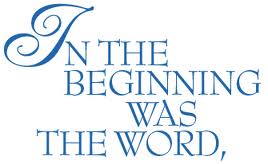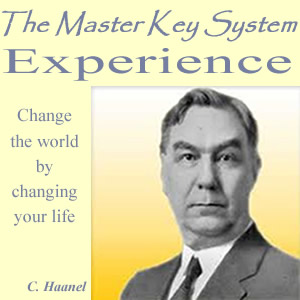In 15-12 of the Master Key we read:
“The first form which thought will find is language, or words; this determines the importance of words; they are the first manifestation of thought — the vessels in which thought is carried.”
It is quite easy for our intellect to understand the meaning of these sentences.
But it may take some more time to also understand their scope and their impact in our daily life.
How many times a day are we hearing someone complaining about his current situation or projecting pessimistic predictions for his near future – Sometimes maybe we are catching ourself doing it?!
Of course, this is a tragic behavior that each of us should earnestly try to eradicate forever from their habits!
This fact started to really emerge in my awareness after I heard an hilarious but very profound speach of a talented speaker and networker named Randy Gage, some years ago.
As a young and very promising networker, Randy had been invited by a great leader to give a speach during an important convention on the West Coast.
They had dinner together the evening before, and Randy told us what happened during that evening that changed his life forever:
“I had spent the whole meal talking about all the bad things that had happened to me in my business and in my life, and about all the difficult challenges I had to overcome to reach my current level in the organization.
During two hours, I moaned and complained, ‘ME, Randy, fighting alone against all the forces of evil’…and he listened to me very patiently.
At the end of the meal, he stood up, paid the bill for both of us and we walked silently to his car through the parking lot of the restaurant.
While reaching his car, a beautiful white Mercedes Benz, he said: “Randy, may I ask you a question?”
I said yes, and then he said:
“Did you ever ask yourself why you are manifesting all these things in your life?“
It would be too long to reproduce here the funny way Randy told us how he reacted to that “hell of a question”, but substantially, it took him several weeks before he realized and accepted the precious gift he had received from his partner during that evening!
And isn’t it true that many conversations look like a kind of “victim committee” in which each person reports about one of their personal tragedies, hoping that it will look more spectacular than the tragedies of the other members of the “committee”?!
How many times have we all participate to such conversations?
It is only when we really get that the sentence “and the word became flesh” is not just an abstract old-fashioned religious formula, but a very down-to-earth practical explanation of how operates our reality, that we can start to pay a true attention on the words we say!
So far, I found a simple and efficient rule that I try to apply to myself about my speaking: NEVER talk about a problem, a difficulty, or any “negative” circumstance, UNLESS it is absolutely necessary to do so in order to resolve or eliminate it.
And as I find quite easy to ask the above “hell of a question” to myself when a catch myself breaking that rule, I found a more tactful formula to use when I am caught in a “victim committee”: I usually say “I understand. And what would you like to do about it?”
Let me know what are your ways to deal with the word!


Thanks Luc… a great question to ask of ourselves. I sometimes ask myself “What’s the payoff? Why do I keep doing this even though I know it doesn’t serve me.” I am becoming more and more aware of the ways in which I create or perpetuate a victim/struggle mentality… one by one I’m letting them go… which leaves me with much more energy to create positive things in my life… 🙂
Yes, that is exactly the right thing to do, being in the Observer mode and slowly but surely “purifying” the inner world, the world of thoughts…the most difficult work in the world, but so rewarding! Well done Mani, and thank you for your wise feedback.
How very true. I just ended a 30 year career due to the awareness that most my negativity was coming from it. I’m still learning how to control negativity so that eventually it will atrophy. Thanks for sharing!
Yes, the traditional working environment (corporate world or elsewhere) is often a big source of negativity, what you just did requires courage and awareness, and if you have persistence on top of these, it’s game over, you win! congratulations and thank you for sharing!
Excellent blog post. Love the reframe of the scripture passage to having a victim mentality or a creator mentality. Powerful. This is a question I need to ask myself and others constatnly and consistently to help change the focus. Thank you.
Yes, changing our focus is hard work but it’s worth it! Thank you for your feedback, Bill.
Wow Luc, “Did you ever ask yourself why you are manifesting all these things in your life?“. Now I do. Thank you for a wonderful post.